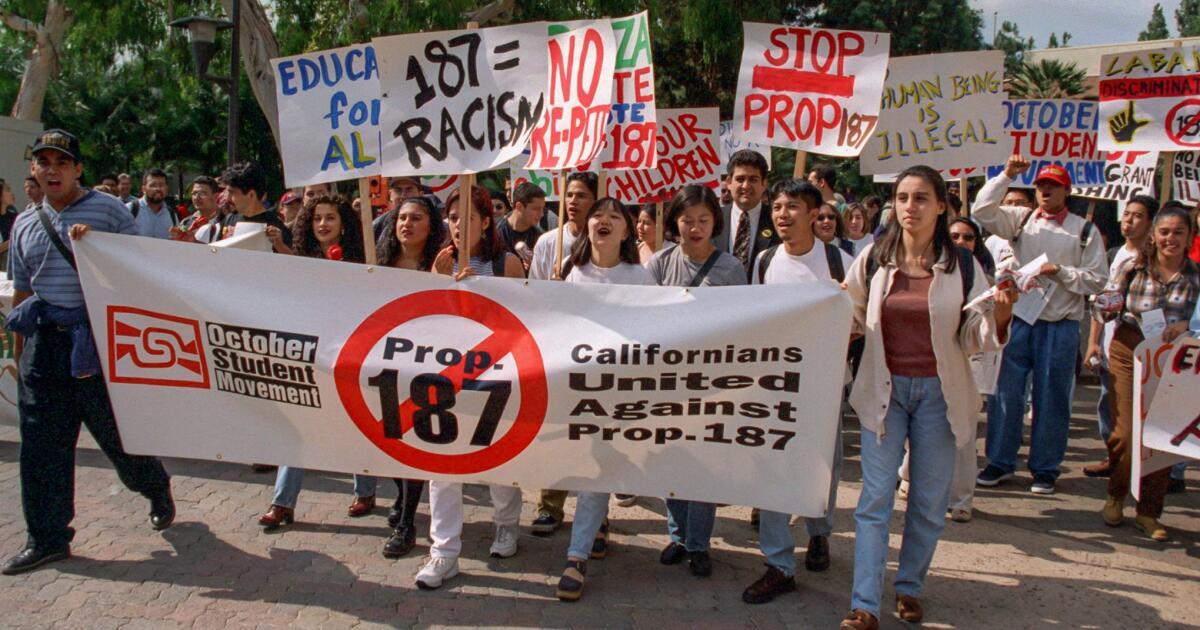Thirty years ago, Californians passed a ballot measure that catalyzed a generation of Latino voters. Proposition 187 aimed to deny virtually all public services to the undocumented and their children. Written largely in response to the transformative demographic change occurring in California at the time, the measure triggered a seismic shift in racial politics and galvanized Latino activists, some of whom would eventually hold the state’s most powerful political offices.
The plight of undocumented and recent immigrants became an indelible part of the political narrative for a generation of Latinos and their leaders. Something remarkable and unprecedented happened in 1994, the year of the Proposition 187 campaign. Nearly two-thirds of Latinos voted against the measure as a bloc across parties, genders, generations and national origins.

They melded into an ethnic political coalition built on the narrative of the undocumented and migrant experience. As Latino politicians amassed power and numbers over the ensuing decades, however, a curious phenomenon emerged: Latino voter participation began to drop dramatically. To this day, Latinos vote at lower rates than any other race or ethnicity in California.
At the same time, nearly every high-quality survey of Latino voters identified jobs and the economy as their top concerns. Latinos disproportionately suffer from California’s economic challenges, from housing affordability to high poverty to educational barriers. And they have.























